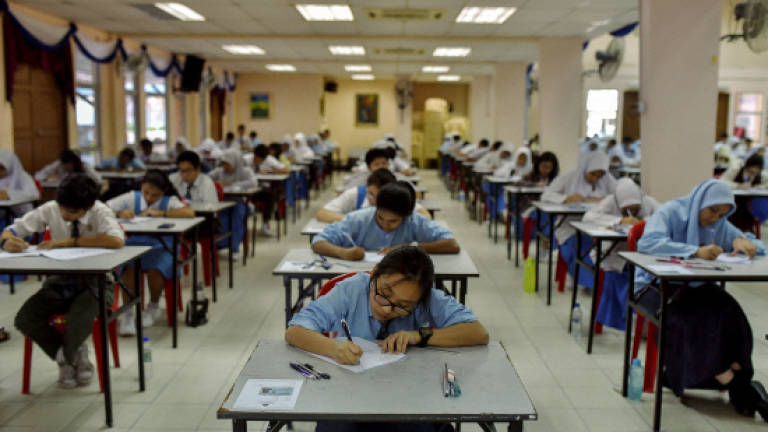MOE: UPSR To Be Abolished From Now On And PT3 Is Cancelled For 2021
Education Minister Datuk Dr Radzi Jidin made the announcement during a press conference today.
Ujian Penilaian Sekolah Rendah (UPSR) for Year Six students will be fully abolished beginning this year
Education Minister Datuk Dr Radzi Jidin made the announcement today, 28 April, during a press conference.
He said that the assessment method for Year Six students will be centred on strengthening School-Based Assessments (PBS) effective this year, following the abolition of UPSR, Bernama reported.
Admissions for boarding schools in 2022 will be based on Specific Schools Admission Assessment (PKSK), Radzi explained.
"In line with the abolition of the UPSR, the Primary School Alternative Assessment (PASR) for Special Needs Pupils (MBK) has also been abolished," he added.
The Form Three Assessment (PT3) will also be cancelled this year
The Education Minister said that PT3 will be replaced with assessments for students similar to last year reported New Straits Times.
Form Three students will be graded through classroom-based assessment (PBD), physical activity, sports, and curriculum assessment (PAJSK), and psychometric assessment (PSI) instead of sitting for PT3.
PT3 was also cancelled in 2020 due to COVID-19.
Radzi added that, "As for admission to boarding schools (Form Four in 2022), the students can sit for the PKSK."
Elaborating on the abolition of UPSR, Radzi said, "We received various feedback and input which benefited the ministry on the way forward for UPSR"
He explained that the Ministry of Education (MOE) has been looking into methods of conducting and implementing primary school assessments used by other countries.
"Based on that, we then proceed with thorough engagement sessions with the stakeholders, namely headmasters, teachers, the Parent-Teacher Associations, students, and related associations — involving more than 1,700 participants nationwide," Radzi told reporters.
He related that teachers, who gave feedback through the engagement sessions, had said they were rushed to finish the syllabus to focus on 'latih tubi' (exercises through workbooks) for UPSR subjects.
The teachers had to curb their creativity when it came to making lessons more fun for students and used up time allocated for other subjects to prepare for UPSR.
Parents also recounted that many of them felt pressured in preparing their children for the examination and send their children for tuition classes from as young as Year One in order to do well in school.
"As for students, many of them were pressured to do well and achieve 6As and so on," Radzi lamented.
He added that many students only saw UPSR as a method for them to achieve a place in boarding schools for Form One.
UPSR was first introduced in 1988 and the idea to abolish the examination dated as far back as 2010
In 2010, then education minister Muhyiddin Yassin proposed the abolishment of the examination with the argument that it made learning more exam-oriented rather than providing students a more holistic education experience, according to Free Malaysia Today.
UPSR was initially introduced into the education system with the purpose of covering the 4M learning model, which consists of reading, writing, counting, and reasoning, reported Bernama.
In 2016, national school students were required to take six subjects, whereas it was compulsory for students in Chinese and Tamil schools to sit for an additional two subjects, totalling eight subjects.


